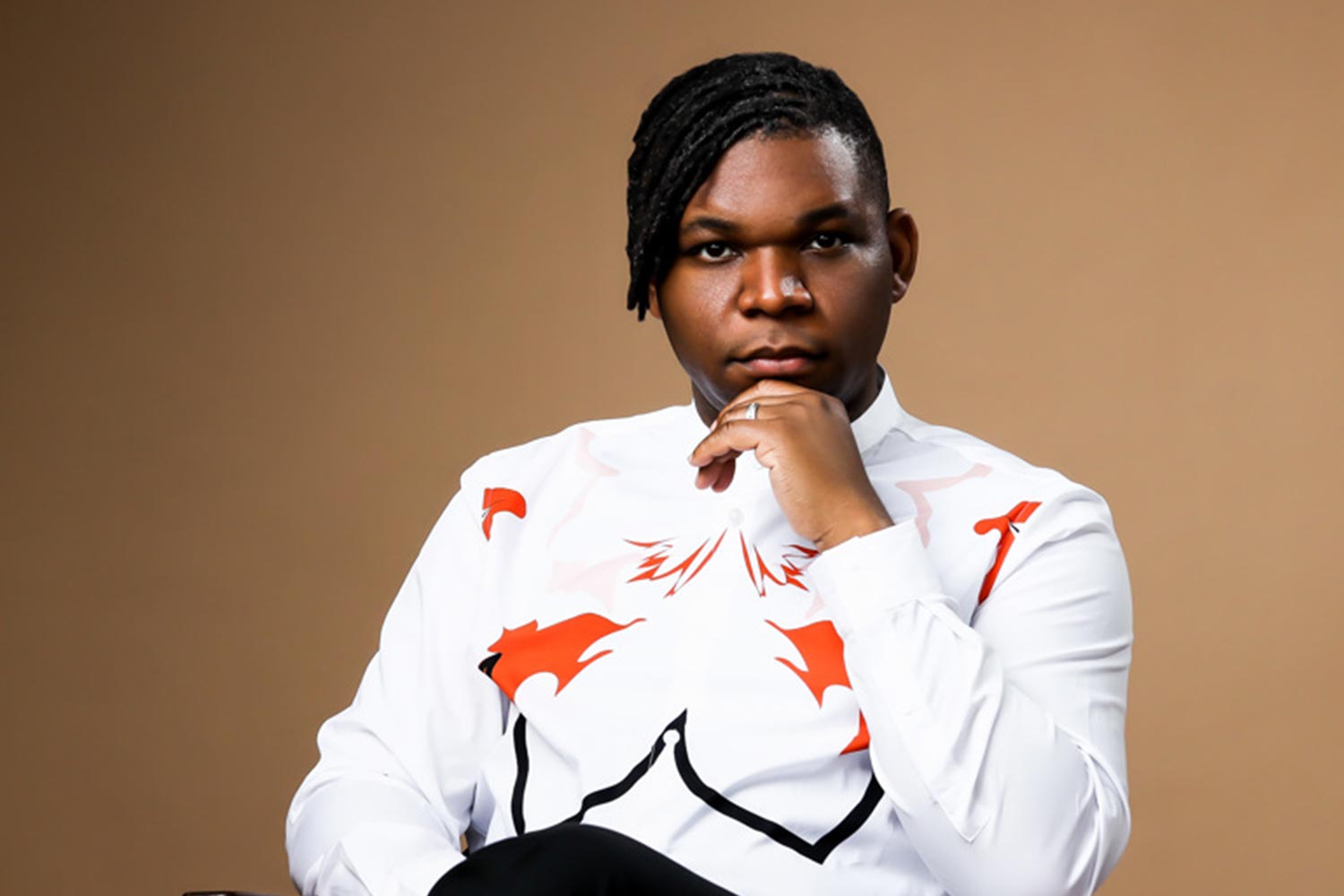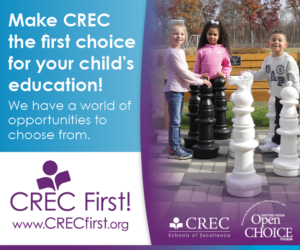Tis the season for holiday get-togethers, and for many of us, that includes attending services at houses of worship. While there is a widespread perception among opponents of LGBTQ+ rights that our community doesn’t believe in God or attend religious services, that’s far from the truth. Just ask a gay reverend, or a transgender minister, or a lesbian rabbi. CT Voice did just that, and more!
But first, let’s clear up any misconceptions. Researchers at the Williams Institute at UCLA found that nearly half of all LGBTQ+ adults consider themselves “religious.” According to their 2020 study, the LGBTQ+ faithful come from all over, both rural and urban settings, both single and married, across all ages, racial and ethnic groups. Connecticut, too, boasts a rich tapestry of religions, and out clergy.
United Church of Christ:
Rev. Darrell Goodwin
“My desire is that everyone knows they have a right to be loved and they have a right to a relationship with God,” said Rev. Darrell Goodwin, executive conference minister of the Southern New England Conference of the United Church of Christ. Originally from Chicago, Rev. Goodwin said he has been preaching since he was 15 and identifies as queer. “No one owns your right to be loved or your right to have a relationship with a higher power if that’s what you want,” he said. “No one should have a right to take that from someone.”
Toward that end, Goodwin said he has considered a shocking idea that would send a clear message to everyone about where each of the conference’s churches stand on LGBTQ+ and other civil rights issues, including the bigoted ones.
“I want our churches to state that they’re homophobic, transphobic, racist, sexist, everything else,” he said, noting most of the UCC churches do “extravagant work” to be welcoming. “We have an ‘Open and Affirming’ sticker; Let’s create a ‘I’m a bigot sticker.’ And so when I ask you, ‘Are you going to welcome all of God’s people over?’ And you have all your reasons about why you don’t think your church is ready, and the members are too old, and they are not ready for that? I want to say, ‘God bless you. Let me give you your sticker that says, ‘We are a discriminatory church and that’s how we’re going to worship.’ I’m not here to change you, because I’m going to be your conference minister, too.’ I just want people to know when you go to such and such in Hartford, you should just note that’s a homophobic church. But if you want a non-homophobic church, we got about 15 others.” Rev. Goodwin contributed our final page for this issue, as well. Read more on Page 80.
Metropolitan Community Church in Hartford:
Rev. Aaron Miller
In 2008, just a few weeks after going through a week-long interview process in Minneapolis to become ordained as a minister, Rev. Aaron Miller made another important change: he started his gender transition, right here in Connecticut.
“God had put before me a really deciding moment, a defining moment, actually,” Rev. Miller said. “I could not go on and preach and teach and minister in the name of God not being authentic. And so I came home knowing I had to transition as my part of my journey and in answering my call.”
The Yale Divinity School graduate and Long Island native said he never questioned his path forward, and was pleasantly surprised that his employer at that time supported his transition and, more importantly, embraced it, instituting training for all employees. He spent 30 years working in corporate America, landing on a top rung of the ladder as a senior manager.
Miller left to become chaplain at Yale New Haven hospital for a decade and since 2011 has been pastor of the Metropolitan Community Church in Hartford, which welcomes people of all sexual orientations, gender identities, and faiths, even non-Christians and non-believers.
“We have Hindu, we have people who are agnostic and atheist and Jewish,” said Miller. “We’re there because of love.”
He challenges other faith leaders to throw open their doors, too. “How can you create that within your faith communities, so that what binds you together is not how you look, or how you dress, or where you live, or your Zip code, but rather how you love, who you love, and that you love?”
Congregation Beit Simchat Torah, New York City:
Rabbi Marisa James
“I grew up in Connecticut thinking I was straight, like many people who grew up in Connecticut, and I was actually a co-founder of the GSA at my high school in Woodbridge,” said Rabbi Marisa Elana James of Congregation Beit Simchat Torah, the largest LGBTQ+ synagogue in the world. CBST is nondenominational, and like Miller’s MCC church, welcomes everyone to its services.
Too often, Rabbi James said, temples are afraid to be inclusive, which she said is a heartbreaking misstep. “The minute that you treat somebody who’s like a holy being, walking into your community, as a question mark, it’s already a wedge, it’s already a buffer, it’s already saying, ‘No, you’re not quite human.’”
James, who was the first “officially sanctioned lesbian” at the Jewish Theological Seminary in New York, not only preaches about LGBTQ+ acceptance from the Torah, but also from A Christmas Carol.
“I literally read it out loud every single year to whomever will listen to me,” she explained. “What really should be the root of any religious celebration should be this idea, like Dickens said, that we are all creatures on the same journey to the same end. How can we not be taking care of each other and be generous with each other and have something each year that reminds us to be generous with each other, and to take care of each other, knowing that we’re all on the same journey that we’re all going to wind up in the same place?”
Temple Israel of Westport:
Cantor Julia Cadrain
“As a member of the queer community, one of the ways I try to shine my light is by sharing about my family,” said Cantor Julia Cadrain, a West Hartford native. “I talk about my wife, and our two children. I am proud of us, and I am particularly proud of my wife Elana Arian, who is a well-known Jewish composer and musician, and spiritual leader. When we sing her music, I sometimes tell people,
‘This is a song by my wife.’ Talking about one’s family is a typical way of connecting with people, but in my case, it necessarily includes a little ‘coming out’ each time. If I don’t specify, people assume the heteronormative standard and ask me about my husband. My hope is that in being forthcoming about who I am, I give others permission to do the same.”
Cadrain shared what she called “four small, accessible steps towards creating more inclusive and welcoming faith communities.”
“As a member of the queer community, when I enter into a new place or meet new people for the first time, I don’t necessarily assume that I will be accepted,” she revealed. “I noticed on one of my first days at my new synagogue, Temple Israel of Westport, that there was a small rainbow flag in our building’s entryway. Immediately, it made me feel safe and accepted. This is a small thing that sends a big message about inclusion and can be easily adopted by all faith communities.
“Second, we need to listen to our children and teens, and let them lead the way in the work of inclusion. The world they inhabit is very different from the world in which I grew up, as far as ideas about gender and sexual identity. I want us to take our cues from them.
“Third, I am conscious of lifting up our tradition’s female heroes. Although in ancient times, our tradition was progressive for its moment, many of our prayers and stories still historically center around men,” said Cadrain, who said she’ll adjust pronouns or add inspirational figures such as Miriam to stories and songs.
“Finally, representation matters. I am proud to be spiritual leader who is open about my family and about who I love. My hope is that in my simply being myself, and being honest and open about who I am, I will give others permission to do the same,” she said. “The more we embrace diversity, the stronger we become.”
Islam
In its guide to how Islam intersects with the LGBTQ+ community, the Human Rights Campaign concedes, “It is rare that an openly LGBTQ+ Muslim feels fully welcome at a mainstream mosque in the United States. Cultural norms and traditional readings of sacred texts often uphold a heteronormative binary of gender identification and sexual orientation that don’t allow for the range of identities present in today’s society.”
But groups like Muslims for Progressive Values, Imaan LGBTQ+ Muslim Support Group and Queer Jihad are working to change that.
“Our LGBTQ+ members of society are equally human and deserve respect and dignity; After all, they too carry the spirit of God in them. So, celebrate together, as equals,” Ani Zonneveld said. She is the founder and president of Muslims for Progressive Values, and a straight ally. “As people, the Quran is clear, we will be judged by our good deeds, and not by race, gender or sexuality.”
It may be surprising, but gender transition does not raise hackles in much of the Muslim world: “Transgender men and women are recognized and accepted in many Islamic cultures around the world,” according to HRC.
The ‘Nones’
The group that is far and above the most accepting of LGBTQ+ people turns out to be those who don’t believe in God at all. According to a 2015 study by the Pew Research Center, 94 percent of respondents who considered themselves agnostics said homosexuality should be accepted. Although most people around the world identify with one faith or another, the number of people with no religious affiliation, often referred to as “the nones,” is expected to grow to 1.2 billion by 2060, according to Pew; right now, the “nones” account for about three in ten Americans, or 27 percent. That number has been growing since 2012, along with LGBTQ+ acceptance by self-described agnostics and atheists.
If one thing emerges from these conversations, it’s that the various faith traditions all have in common a desire for what Goodwin calls “extravagant welcome.” It’s a particularly important message right now as so many high-profile religious people are delivering the opposite message to LGBTQ+ people. None of this has escaped those who are trying to be more inclusive.
As Miller says in response to those who cite scripture to justify division, “God does not make mistakes, and God intentionally and magnificently decided to make me this way,” he said. “Who am I to question how God has created me, and the fact that I am becoming, or as we all are, something more beautiful every day? I think that is absolutely God’s creative spirit.”








More Stories
Connecticut Sun: Playing for Good
Call Him Mister Connecticut: Jean Carlo Salazar’s Journey as Nurse, Model and Pageant Contestant
Ensuring a Seat at the Table